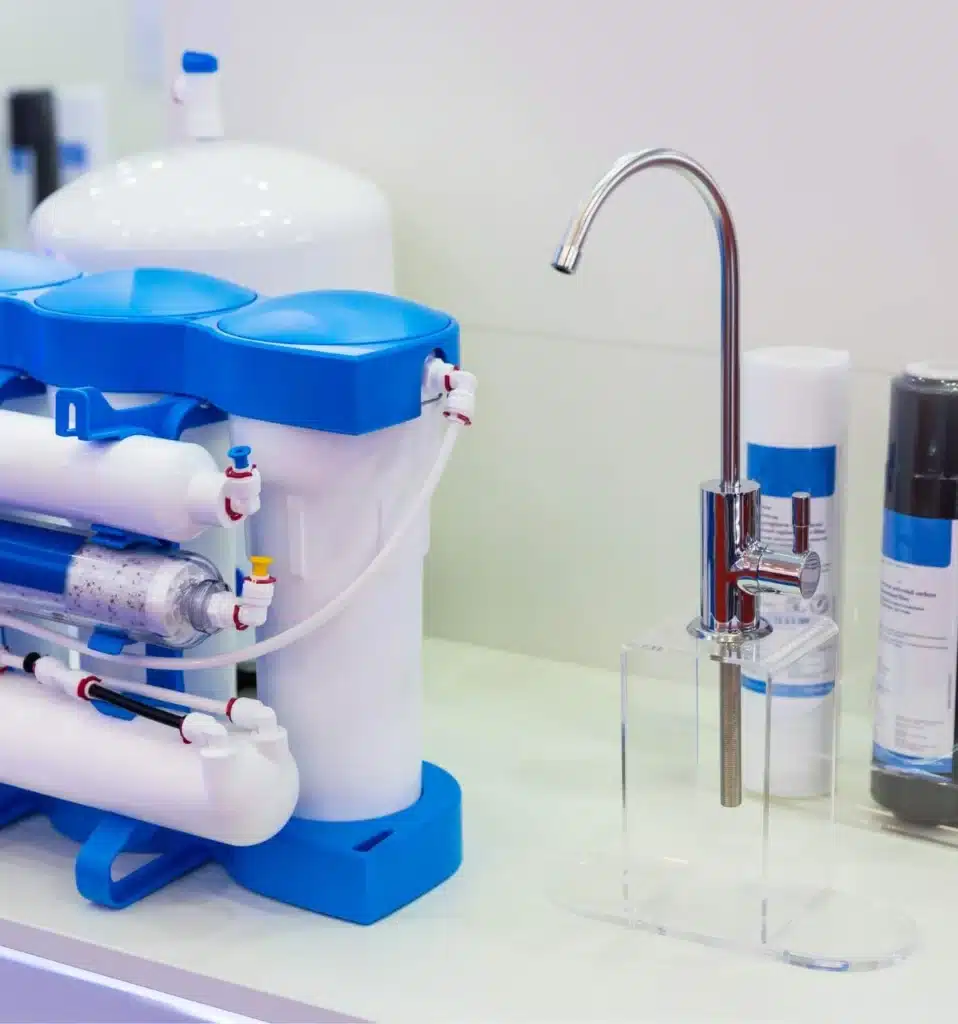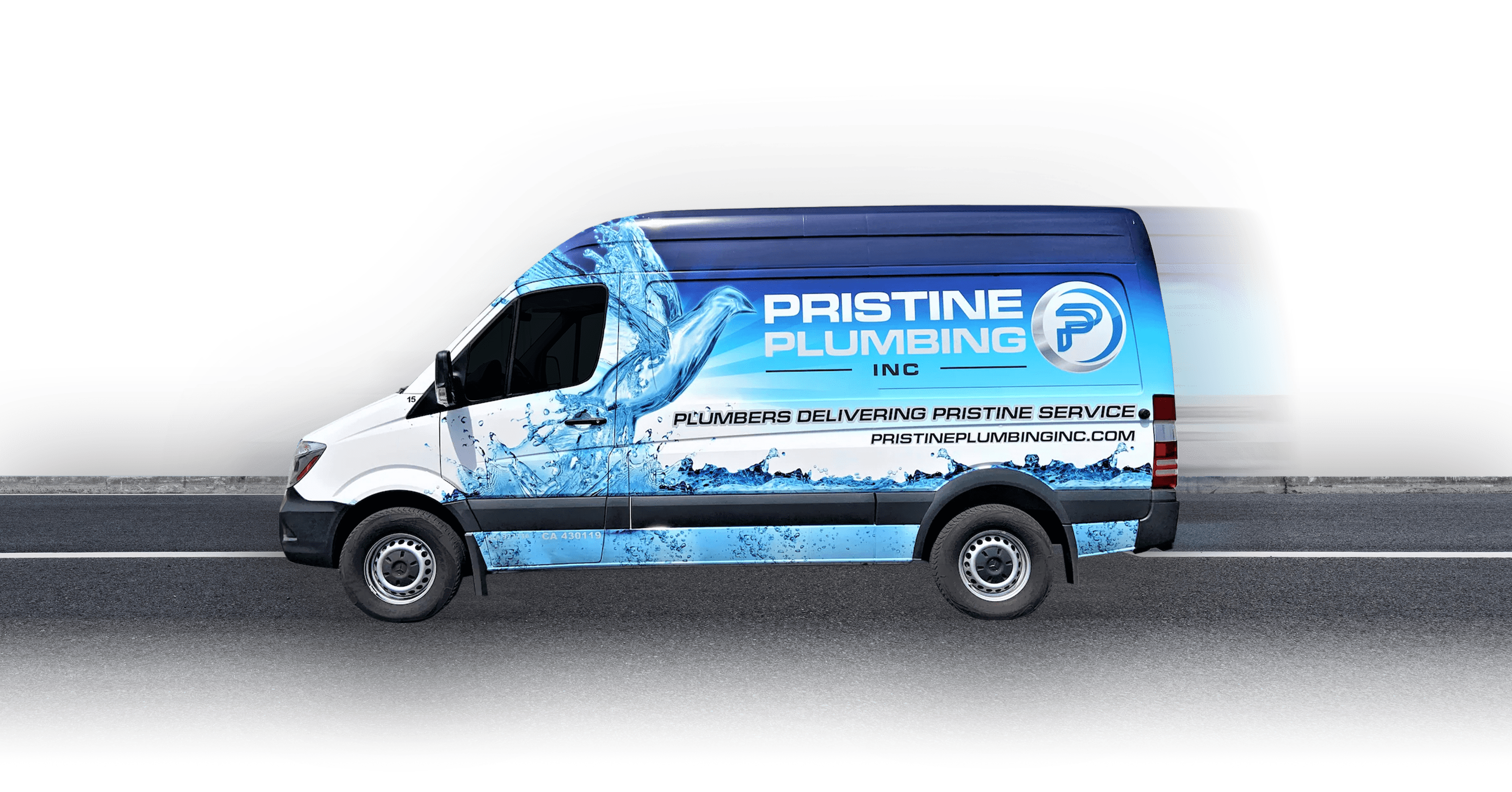
Have you ever turned on the tap only to notice odd tastes, strange odors, or stubborn water spots on your dishes? You might ask what hard and soft water are and why you should care. While hard water may not have visible symptoms, it can still wreak havoc on your plumbing, appliances, and skin.
The difference between hard and soft water isn’t always noticeable, but understanding it can help you avoid costly repairs and improve water quality.
What is Hard Water and Soft Water?
Hard water contains high levels of dissolved minerals, primarily calcium and magnesium. These get picked up as water flows through mineral-rich areas like limestone, chalk, and gypsum. Over time, this water becomes “hard,” and the more minerals it carries, the harder it gets. About 85% of U.S. households have hard water, making it a common issue in many homes.
On the other hand, soft water has low or no mineral content. This can occur naturally—like in rainwater, typically soft—or be achieved through treatment processes, such as using water softeners to remove calcium and magnesium. When you use a water softener, the system typically replaces these minerals with sodium or potassium, making the water softer and less likely to cause the frustrating issues you’ve probably experienced with hard water. Learn more about the difference between hard and soft water in this article by Pristine Plumbing.
What is the Difference Between Hard and Soft Water?
Feature | Hard Water | Soft Water |
Mineral Content | High in calcium and magnesium | Low or no minerals |
Taste | Can have a slightly metallic taste | More neutral and pleasant |
Impact on Skin and Hair | Can dry out skin and hair | Leaves skin softer, hair shinier |
Effect on Appliances | Causes mineral buildup, reducing efficiency | Keeps appliances running efficiently |
Signs You Have Hard Water
It’s easy to miss the signs of hard water—especially since its effects build up over time. Here are five clear signs that your water may be harder than it should be:
- Soap Scum Residue: Hard water reacts with soap to form an insoluble film, making it challenging to clean surfaces like sinks and bathtubs. This also leaves your skin feeling slippery or filmy after a shower. Have you noticed that soap seems to lather less than it should? That’s hard water at work.
- Scale Buildup: If you’ve seen white, chalky deposits around your faucets, showerheads, or inside your appliances, such as water heaters, you’re dealing with scale buildup. These minerals can clog your pipes, reduce water pressure, and create costly maintenance issues.
- Dull Laundry: Hard water makes detergent less effective, meaning your clothes won’t come out as clean or vibrant as they should. Over time, this can make fabrics feel rough, look faded, and wear out quickly. If your laundry’s looking dull, hard water might be to blame.
- Dry Skin and Hair: Hard water can strip your skin and hair of natural oils, leaving both feeling dry and uncomfortable. If you’ve noticed your skin getting itchy or your hair feeling brittle after a shower, it’s a sign that hard water could be causing the issue.
- Plumbing Problems: Over time, hard water can cause a severe buildup inside your pipes. This reduces water flow, causes blockages, and can lead to expensive plumbing repairs. If you’re starting to experience low water pressure or hear strange sounds in your plumbing, hard water might be the cause.
Water Softeners: Eliminate the Impact of Hard Water
If you’re tired of dealing with the effects of hard water, a water softener is your best solution. These systems transform hard water into soft water, effectively preventing its adverse impact on your home, plumbing, and skin.
How Water Softeners Work
Water softeners operate through a process called ion exchange. They swap the calcium and magnesium ions in hard water for sodium or potassium ions, making the water softer and easier on your home. Advanced technologies such as salt-free systems and magnetic conditioners are also available.
Salt-free conditioners are great for eco-friendly users but may be less effective on extreme hardness. On the other hand, magnetic conditioners use a magnetic field to reduce mineral buildup without chemicals.
Types of Water Softeners
- Salt-Based Softeners: These are the most common and highly effective at removing water hardness.
- Salt-Free Conditioners: A more environmentally friendly option, but less effective for hard water.
- Dual-Tank Systems: Ideal for larger households with high water usage, these systems provide continuous soft water.
Benefits of Installing a Water Softener
Installing a water softener brings several benefits:
- Extends Appliance Lifespan: No more scale buildup to damage your water heater, dishwasher, or washing machine.
- Improves Skin and Hair Health: Soft water helps your skin retain moisture and leaves your hair soft and shiny.
- Reduces Cleaning Efforts: Say goodbye to stubborn soap scum, stains, and water spots on your dishes and faucets.
- Saves Energy Costs: Appliances run more efficiently without the mineral buildup, leading to lower energy bills.
- Protects Plumbing Systems: Prevents clogs and reduces the need for expensive repairs.
Installing a water softener can help you save money on energy bills, prevent costly appliance repairs, and keep your home running smoothly. Professional installation ensures optimal performance, while DIY solutions might be inefficient or damaging.
At Pristine Plumbing, we offer water softener installations, budget-friendly options, and financing plans to help you enjoy the benefits of soft water.
Contact Water Softener Installation Specialists
When you contact Pristine Plumbing, our certified specialists will assess your water hardness and household needs to recommend the best water softener system for your home. From selecting the right system to efficient installation using advanced tools, we ensure everything is set up for long-term success. We even offer tailored maintenance schedules to keep your system running at its best.
With years of experience in hard water treatment, our licensed plumbers will guide you through the entire process. Schedule a consultation today and let Pristine Plumbing handle all your water softener needs.
Don’t wait—protect your plumbing, appliances, and skin today! Contact us now for professional installation and maintenance.
